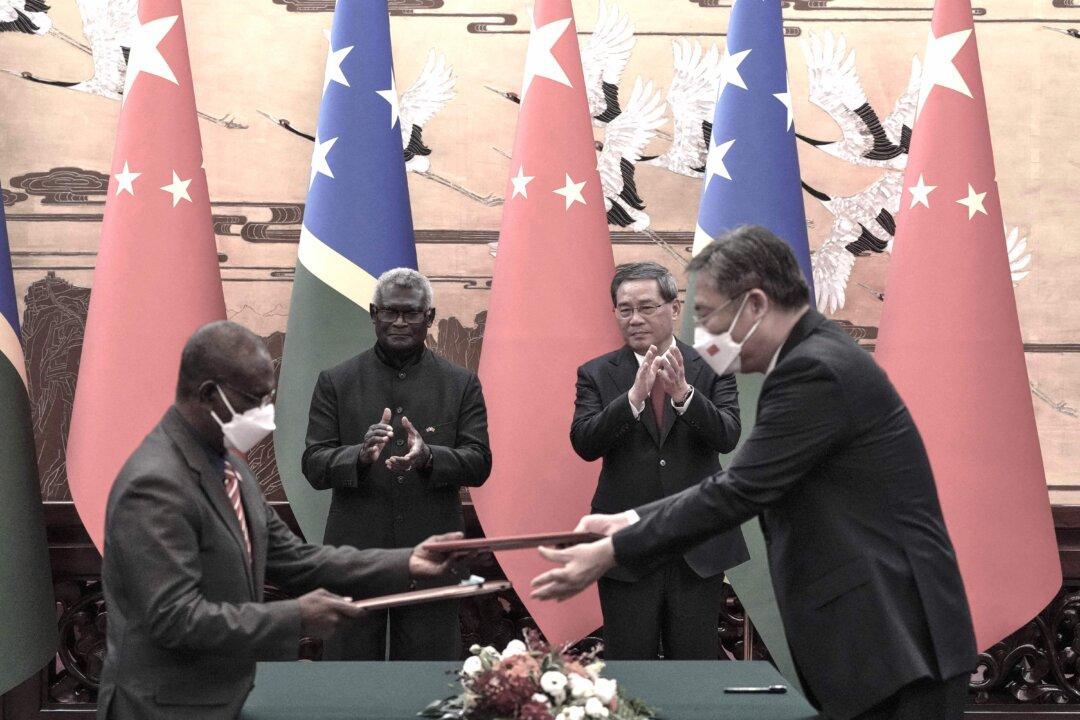A delegation of high-ranking Chinese Communist Party (CCP) officials recently visited the Solomon Islands, which was highlighted by Chinese state media as a sign of flourishing cooperation and “strengthened engagement” between the CCP and the Solomon Islands’ current ruling party, which is led by Prime Minister Manasseh Sogavare.
The Solomon Islands, a nation of hundreds of islands in the South Pacific, some of which were pivotal battlegrounds during World War II, has been in the geopolitical limelight in recent years because of its growing diplomatic and strategic proximity to China.





